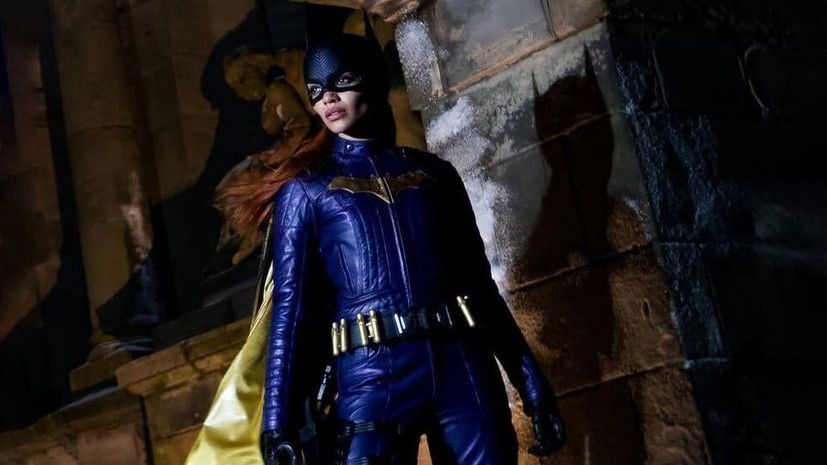Studio Warner Bros.
refused to release the Batgirl film, which had already been made, both in theaters and online.
The company's decision to cancel the release surprised experts and fans who were expecting the premiere in 2022.
The picture was at the post-production stage - the shooting was completed a few months ago.
According to Deadline, there was talk that this could be due to the leading lady in the film (Latino Lesley Grace) or the quality of the film itself.
However, at Warner Bros.
explained that the decision was caused by a change in the strategic course regarding DC and HBO Max and had nothing to do with the filmmakers or actors.
In addition, the company announced the cancellation of the release of the cartoon Scoob!: Holiday Haunt (“Scooby-Doo! Haunted Holidays”).
Other studio projects are expected to come out as planned.
The Batgirl writers were also told that the film's cancellation was due to "accounting" and cost cutting for the company, which recently had a management change that resulted in a revised business strategy.
Not releasing the film will help avoid further promotional costs at the same time as the various divisions of Warner Bros.
There is already $3 billion in debt.
The company is also renegotiating the contract with the film's directors and Leslie Grace.
“The decision not to release Batgirl reflects a shift in our management strategy for the DC Universe and HBO Max.
Leslie Grace is an incredibly talented actress, and the decision has nothing to do with her acting.
We are very grateful to the creators and cast of Batgirl and the sequel to Scooby-Doo!
and look forward to working with them again in the near future,” the statement said.
In addition, according to Variety, "Batgirl" is not too big a project for the wide screen and not small enough for a digital release.
The hybrid release of the project (simultaneous release in theaters and on the network) did not suit the management.
In particular, DC CEO David Zaslav spoke out against such a format.
The hybrid release concept was heavily promoted by former WarnerMedia head Jason Kilar.
This approach was especially relevant at the height of the coronavirus pandemic, when the films Dune, Godzilla vs. Kong, and The Matrix Resurrection were released.
Even then, many in the company did not agree with Kilar.
Some in the industry believe that a film is most profitable when it first hits theaters.
For example, "Top Gun: Maverick", presented in cinemas and still not available on video services, grossed over $1.3 billion with a budget of $140 million. rental and that’s why they attract viewers online.
As the authors of Deadline write, neither Batgirl nor the sequel to Scooby-Doo!
weren't designed to be competitive in the theatrical market—their budgets aren't even close to The Flash and Aquaman and the Lost Kingdom.
Initially, Batgirl's production cost was $75 million, but it has risen to $90 million due to complications arising from coronavirus restrictions.
In the end, instead of expanding spending to promote films in theaters both domestically and globally, the studio decided that shelving these films (and thus forfeiting their monetization entirely) would be the best choice.
The debate about the advisability of a hybrid release has been going on since 2021.
This approach was used for the release of the Marvel Cinematic Universe film Black Widow.
As a result, leading lady Scarlett Johansson sued Disney, stating that the simultaneous release of the film in theaters and on the network was a breach of contract and deprived her of part of the profits.
In response, Disney representatives accused the actress of "ignoring the dire long-term global consequences of the COVID-19 pandemic."
As a result, the conflict was peacefully resolved.

